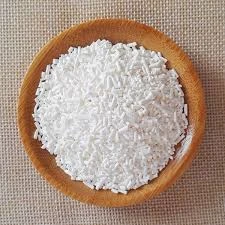
emulsifier 475
Understanding Emulsifier E475 A Key Ingredient in Food Production
In the realm of food technology, emulsifiers play a pivotal role in enhancing the texture, stability, and shelf life of various products. Among the plethora of emulsifiers available, E475, also known as polyglycerol esters of fatty acids, has gained significant attention. This article delves into what E475 is, its applications, benefits, and potential concerns associated with its use.
What is Emulsifier E475?
E475, or polyglycerol esters of fatty acids, is a compound created by chemically combining fatty acids with polyglycerol. The resulting product is a white, waxy powder that is soluble in fat and can stabilize emulsions, mixtures of oil, and water that would otherwise separate. E475 is predominantly derived from natural sources, such as vegetable oils, and is often used in various food products, cosmetics, and pharmaceuticals.
Applications of E475 in Food
E475 is heralded for its versatility and is widely utilized in the food industry. It serves multiple functions, including
1. Stabilizer and Emulsifier E475 is primarily employed to stabilize emulsions in products such as salad dressings, sauces, and spreads. By preventing the separation of oil and water, it ensures a smooth, homogenous texture, enhancing the sensory experience.
2. Thickening Agent In certain applications, E475 can also act as a thickening agent, giving products a desired viscosity, which can be crucial for sauces and gravies.
3. Fat Replacer E475 can mimic some properties of fats, allowing food manufacturers to reduce fat content without compromising flavor or texture. This is increasingly important as consumers seek healthier options.
4. Improvement of Shelf Life By stabilizing emulsions and preventing separation, E475 can help extend the shelf life of products, reducing waste and increasing profitability for manufacturers.
Benefits of Using E475
The use of E475 offers several benefits to both food manufacturers and consumers
emulsifier 475

- Consistency E475 provides products with a uniform texture and consistent quality, which is essential in high-volume food production.
- Versatility It can be used across different types of food products, from baked goods to dairy and confectionery items.
- Enhanced Flavor By ensuring a stable emulsion, E475 helps in retaining the flavor of food products, making them more enjoyable for consumers.
- Regulatory Approval E475 is generally recognized as safe (GRAS) by food safety authorities when used according to good manufacturing practices.
Potential Concerns
While E475 offers numerous benefits, there are some concerns associated with its use
- Allergic Reactions As E475 is derived from fatty acids, there may be concerns for those with allergies to specific vegetable oils. Manufacturers must ensure that labeling is clear to inform consumers.
- Dietary Preferences With the rise of veganism and plant-based diets, some consumers may avoid products containing E475 if they are unsure about the source of the fatty acids used in its production.
- Health Considerations Although E475 can be beneficial in reducing fat content, excessive consumption of processed foods containing emulsifiers may lead to health concerns. Moderation is essential.
Conclusion
Emulsifier E475 is a vital ingredient in the modern food industry, playing a significant role in food texture and stability. As consumer preferences shift towards healthier and more versatile products, the demand for effective emulsifiers like E475 will likely continue to grow. Understanding its applications, benefits, and potential concerns will empower both manufacturers and consumers to make informed choices in food production and consumption. Whether you are a food technologist, a manufacturer, or a consumer, E475 represents both the complexities and innovations that define the contemporary food landscape.
-
Aluminum Hydroxide: Quality Gels & Dried Gel AntacidNewsAug.31,2025
-
Buy High-Quality Trichloroisocyanuric Acid for Sale | TCCA 90% SupplierNewsAug.30,2025
-
Pure Sodium Dichloroisocyanurate Dihydrate | Powerful DisinfectantNewsAug.29,2025
-
Industrial Chemicals: Quality & Purity for Every IndustryNewsAug.28,2025
-
Nitrile Rubber Honoring Strict Production StandardsNewsAug.22,2025
-
Aspartame Ingredients Honoring Food Safety ValuesNewsAug.22,2025
-
Fertilizer for Balanced Plant NutritionNewsAug.22,2025
Hebei Tenger Chemical Technology Co., Ltd. focuses on the chemical industry and is committed to the export service of chemical raw materials.
-

view more DiethanolisopropanolamineIn the ever-growing field of chemical solutions, diethanolisopropanolamine (DEIPA) stands out as a versatile and important compound. Due to its unique chemical structure and properties, DEIPA is of interest to various industries including construction, personal care, and agriculture. -

view more TriisopropanolamineTriisopropanolamine (TIPA) alkanol amine substance, is a kind of alcohol amine compound with amino and alcohol hydroxyl, and because of its molecules contains both amino and hydroxyl. -

view more Tetramethyl Thiuram DisulfideTetramethyl thiuram disulfide, also known as TMTD, is a white to light-yellow powder with a distinct sulfur-like odor. It is soluble in organic solvents such as benzene, acetone, and ethyl acetate, making it highly versatile for use in different formulations. TMTD is known for its excellent vulcanization acceleration properties, which makes it a key ingredient in the production of rubber products. Additionally, it acts as an effective fungicide and bactericide, making it valuable in agricultural applications. Its high purity and stability ensure consistent performance, making it a preferred choice for manufacturers across various industries.





